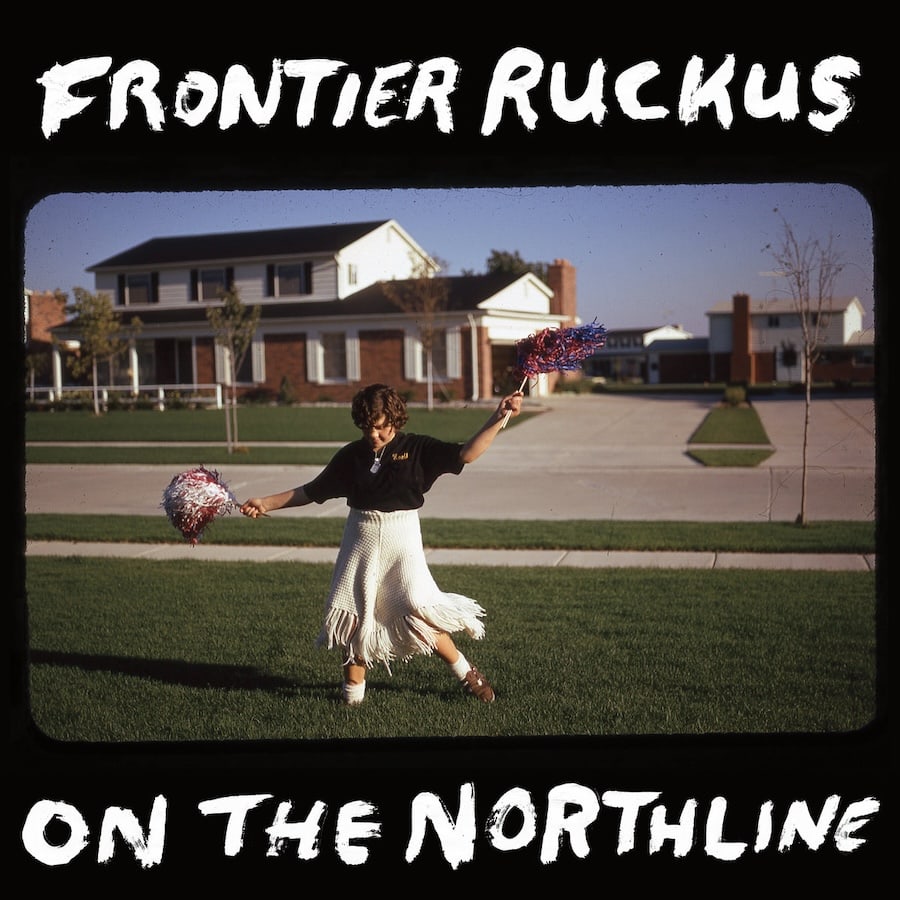
Matthew Millia and Frontier Ruckus give the lie to the notion that a period of happiness in a long-term relationship inevitably declines following a period of seven years.
Frontier Ruckus, the Michigan-based three piece, have made their fan base wait seven years between the release of their last album (Enter the Kingdom) and the band’s latest magnum opus, On The Northline. But the wait has definitely been worth it – and for anyone who loved their last album, it’s more a case of evolution rather than revolution in terms of its sound.
Ostensibly a folk group, Frontier Ruckus are instead more redolent of a left-field indie/americana band, with a sound that will inevitably draw comparisons to the likes of Fountains of Wayne. But whereas Fountains of Wayne had a tendency towards an overly sugary pop confection, Frontier Ruckus are able to chronicle the life and melancholic yearnings of adolescence within a particular suburban landscape (the North Country of upstate New York to which Milia’s family immigrated from Sicily in the early 1900s), while still being able to get to the universal within the messaging in their songs.
The forlorn-sounding opener, I Swore I Had A Friend, sets the tone from the off – wistful, literate chamber pop in a minor key, rooted in a specific time and place, bookended by sublime instrumentation: Dave Jones’ banjo and Matthew Milia’s harmonica during the intro, with Zachary Nichols’ trumpet and circular saw during the outro, proving particularly effective. It’s a tune that wouldn’t have sounded out of place on Grandaddy’s album, The Sophtware Slump. The impermanence of friendship has never sounded so beguiling.
On a record that strikes particularly high levels of songwriting and musicianship throughout, a number of songs still stand out. The title track, On The Northline, with its haunting melody and contemplative lyrics about the underbelly of suburbia, will have you singing its repeated refrain for days on end. Bathed in nostalgia, it explores the ideas the band had as children and revisits them as adults who ponder what their younger versions would think of them today. It’s followed by the outstanding Mercury Sable, an intensely personal song about Milia meeting his wife, who used to drive a rather loud and rattling car, which he was able to hear from some distance away. The song bears witness to how the power of love will always triumph over sadness and loneliness:
When you ran into my landing
Jumped into my arms
No one told me love would hold me
Ever again, despite a life of constant false alarms
In Clarkston Pasture, the verses take place in the Michigan winter, while the choruses cleverly escape into an alternative summer world, with us cruising in a car alongside our protagonist:
Clarkston pasture
Driving faster
Out past the last bachelor pad
My uncle had
Through juxtaposing a harsh Michigan winter with a resplendent Michigan summer, Milia manages to draw a parallel with the polarity of our own existences – the good alongside the bad, a life lived with love compared to its opposite.
More reminiscences feature in Bloomfield Marriott, a lovely affecting ballad about being apprehensive about the future whilst yearning for the past.
If adolescent melancholy and nostalgic yearning are both constants in the Frontier Ruckus musical firmament, then the redemptive power of love is still the star that shines brightest – especially when life can appear at its bleakest. Highly recommended.

